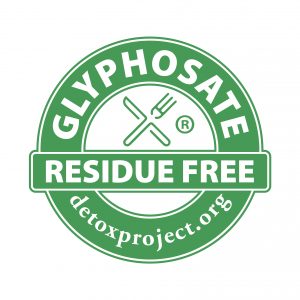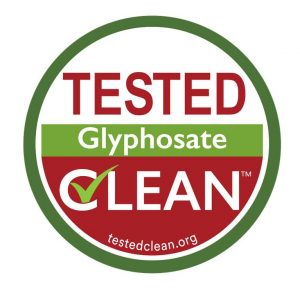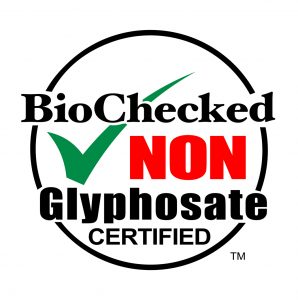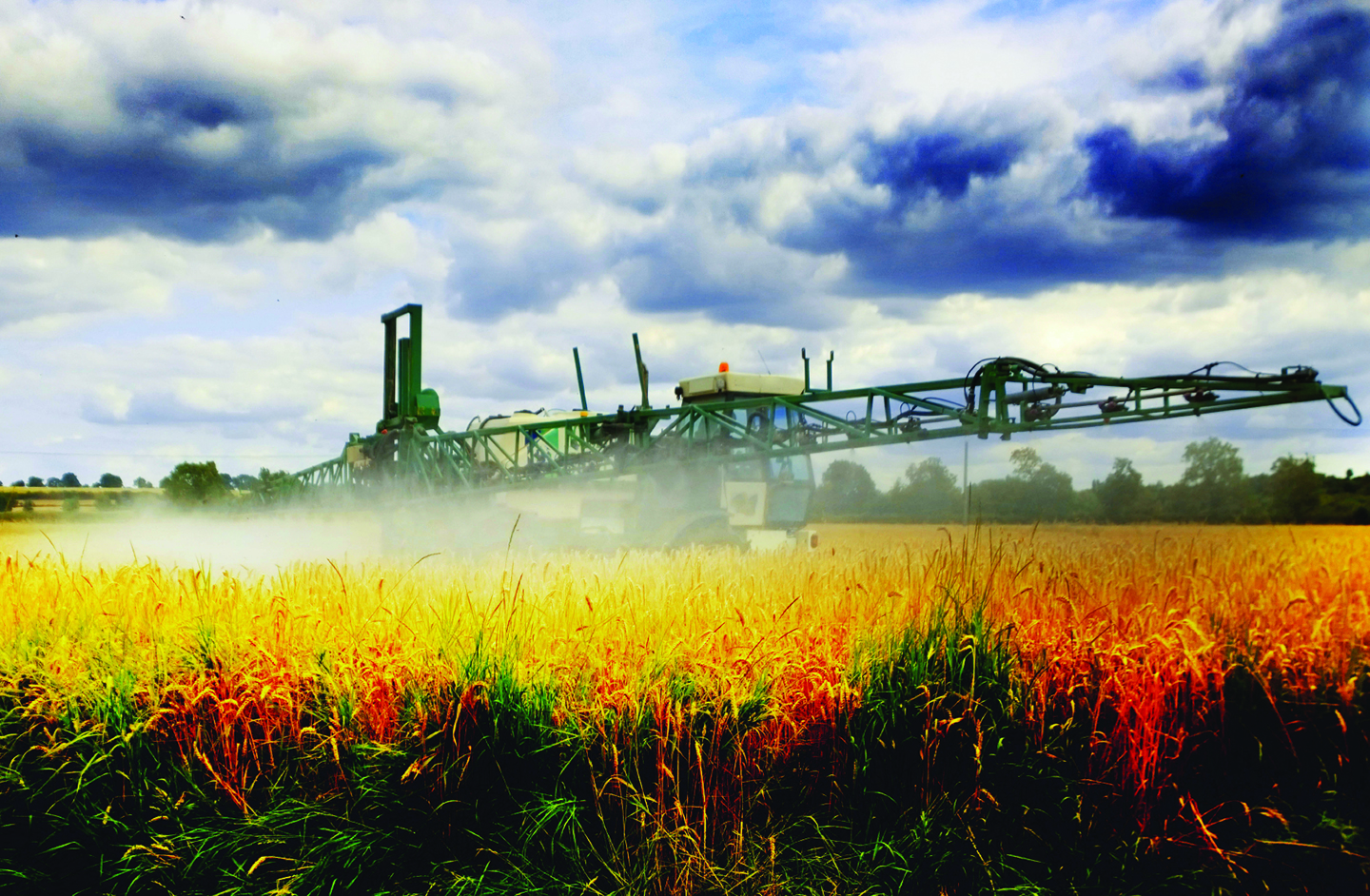Glyphosate, the key ingredient in Roundup herbicide, grabbed major attention in 2015 when the World Health Organization’s International Agency for Cancer Research classified it as a “probable human carcinogen.”
News grew worse from there: lawsuits over Roundup-caused cancer brought millions of dollars in settlements; glyphosate residues were discovered in popular oat breakfast cereals (even organic), including Quaker Oats and Cheerios. Municipalities worldwide are starting to ban glyphosate, and consumer awareness has led to increased scrutiny of packaged foods.
The Detox Project
Henry Rowlands, a journalist and founder of the website Sustainable Pulse, launched The Detox Project in 2015 to offer glyphosate testing. The Detox Project began testing food products around the world for glyphosate and other pesticides, and interest from food and supplement brands in “Glyphosate Residue Free” certification soon followed. Items tested and certified frequently include CBD oils, pea protein, honey, cereals, oats, wheat, honey, beer, juices, and goat milk. By spring 2018, demand had exploded, with calls coming from all corners; The Detox Project has certified 50 brands and 1,000 products to date, with another 25 to 30 in the pipeline.
 “Food brands want to know how the herbicide got into their products and what they can do about it,” Rowlands said. “They want certification—but also an understanding of how to test for glyphosate and other pesticides in their supply chains.”
“Food brands want to know how the herbicide got into their products and what they can do about it,” Rowlands said. “They want certification—but also an understanding of how to test for glyphosate and other pesticides in their supply chains.”
To gain Glyphosate Residue Free certification, a product’s residues must not exceed government-recognized detection limits (usually 0.01 part per million), and lower levels than Maximum Residue Limits in the EU and Japan. An ISO 17025 accredited 3rd party testing lab does the verification.
Certification is renewed yearly, with two or more additional tests, and spot-checks allowed. Single ingredients and single- and multi-ingredient food and supplement products are eligible to receive the seal. Food brands and supplement manufacturers like Foodstirs and MegaFoods dominate the list; recently, ingredient suppliers have also shown strong interest.
Desiccation responsible for most glyphosate residues
A change in attitude from brands is fueling the certification trend, Rowlands said. Whether to accrue positive publicity or avoid negative by not certifying—brands must respond to growing consumer awareness.
Desiccation, spraying of wheat and oats with glyphosate pre-harvest to speed up drying, deposits residues. “Consumers need to know that non-GMO certification doesn’t ensure absence of glyphosate,” Rowlands said “Brands are demanding in their supply contracts that farmers meet certain requirements—such as no desiccation. Stopping desiccation would eliminate 90 to 95 percent of residues.”

Glyphosate is also showing up in organic foods—usually through supply chain contamination—threatening the label’s integrity. Organic proponents want to avoid testing because they see organic certification as “process-based” rather than “testing-based.” The EU’s organic label includes pesticide testing.
“Why not test?” Rowlands asked. “If glyphosate is finding its way into foods you need to deliver transparency on all levels. In the U.S. it’s a hole in the fence—but there’s not enough pressure yet to fill the hole.”
Glyphosate’s safety is hard to evaluate—the majority of the research is corporate-funded or influenced.
“There are many smoking guns out there,” said Rowlands. “Until we have comprehensive independent studies at typical human exposure levels —and regulatory bodies supporting that research—we can’t evaluate the full impact.”
BioChecked Non-Glyphosate Certified
BioChecked is another independent certifier for glyphosate-free (and non-GMO) products. Founder and CEO Scott Prentice was an expert on livestock nutrition, certifying cattle as “100% Grassfed” for ranchers. Glyphosate came on his radar in 2012, when labs informed him residues were getting into the air and water.
 “Since the Non-GMO Project focused solely on GMOs, we saw the opportunity to focus on glyphosate,” Prentice said.
“Since the Non-GMO Project focused solely on GMOs, we saw the opportunity to focus on glyphosate,” Prentice said.
BioChecked relies on independent 3rd party testing, from an approved ISO/IEC lab. The Non Glyphosate Certified ™ label implies zero tolerance—containing no detected glyphosate residue down to lowest possible detection limits—usually 0.01 parts per million.
Accounts are up 20 percent this year. Cereal manufacturer One Degree Organics and Food for Life Ezekiel breads are among the 120 companies certified with BioChecked.
“We’re in the right place at the right time, because the EPA just increased permissible levels of glyphosate,” Prentice said.
Product packaging is becoming more crowded with labels, to the frustration of many consumers. “I’d love to see so much transparency in the system, that we could get rid of all labels,” Rowlands said. Prentice agrees, but says until consumers get the assurance they want, labels will continue to emerge. He suggested that some seals could possibly merge to make things simpler.
A growing number of analytical laboratories are also offering glyphosate testing. Health Research Institute, based in Fairfield, Iowa, tests for glyphosate residues in people, animals, water, food, and soil and recently introduced its Tested Glyphosate Clean certification. Eurofins Abraxis Labs provides test kits for U.S. and Canadian labs—for individuals, truckloads, or large-scale crop testing. Kudzu Science, also working with The Detox Project, is the first laboratory to offer long-term exposure hair testing for glyphosate and other pesticides. The Great Plains Laboratory, a clinical lab, offers a urine test for glyphosate.









